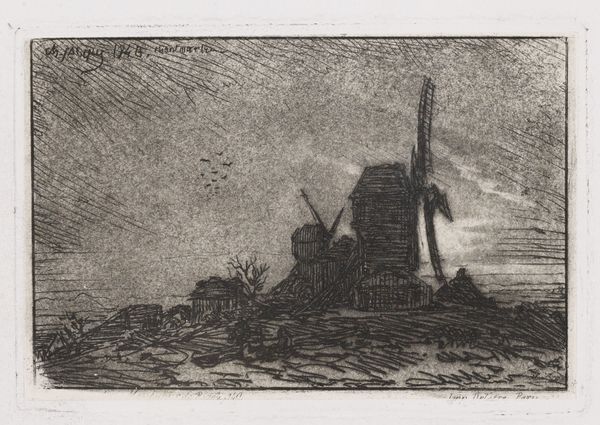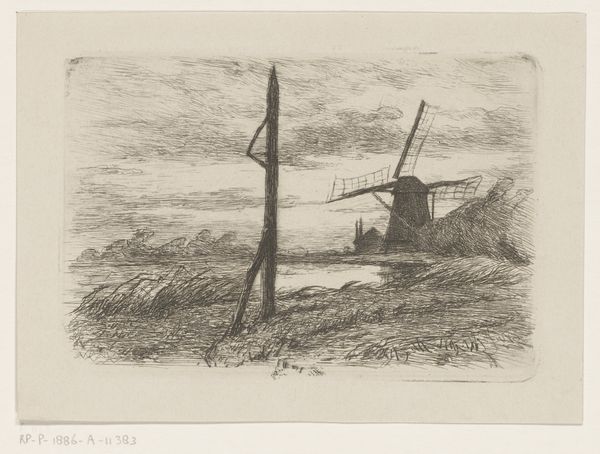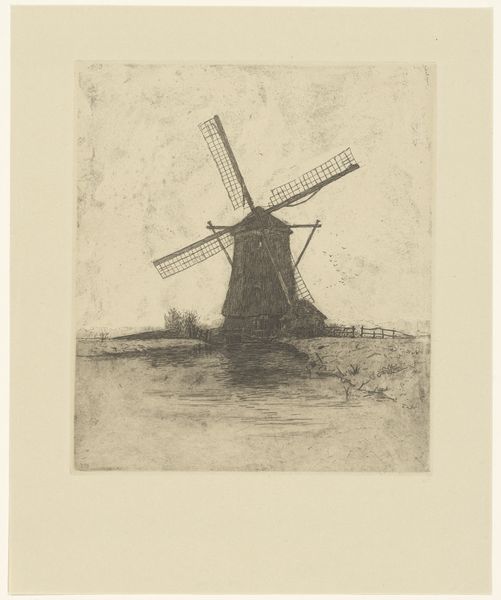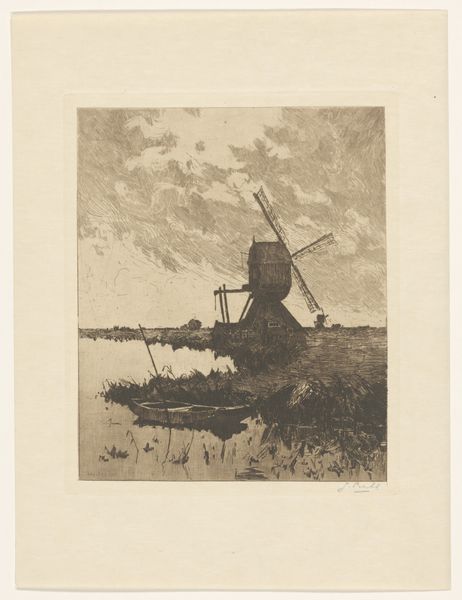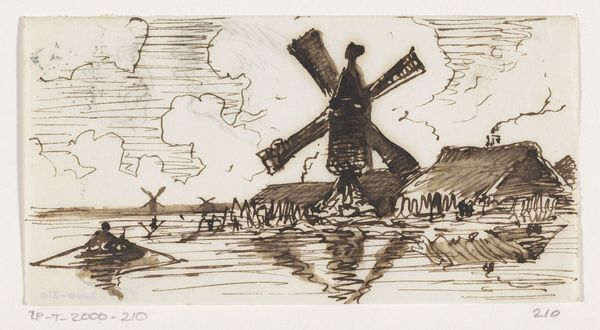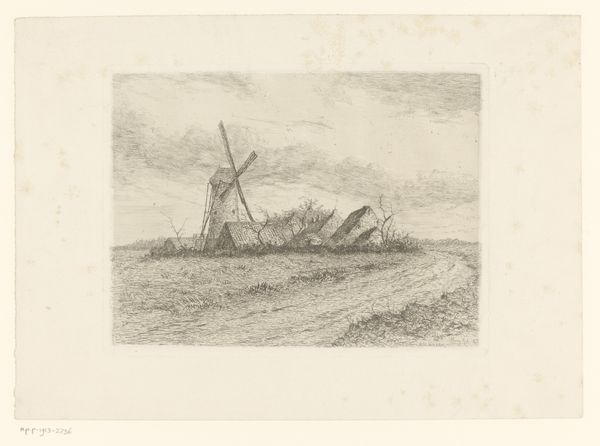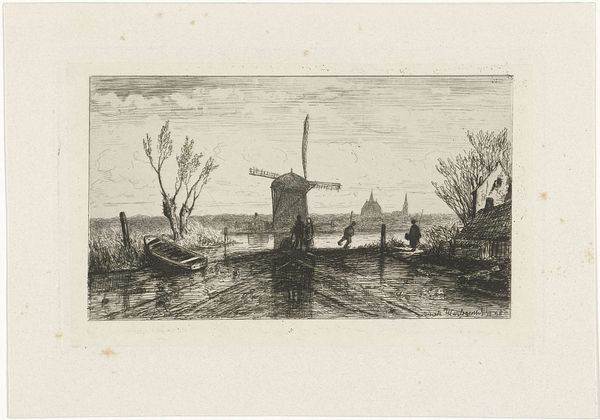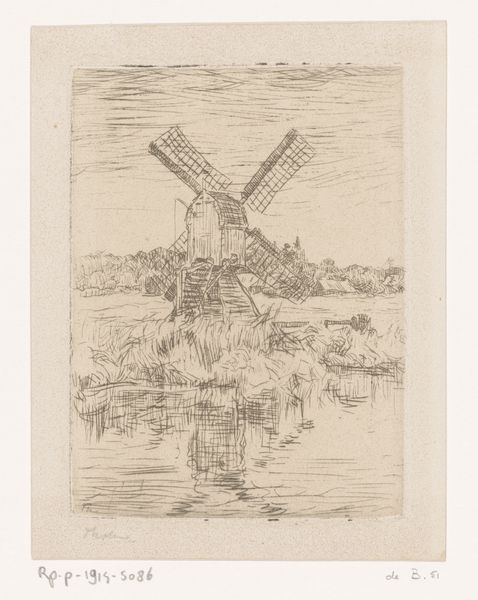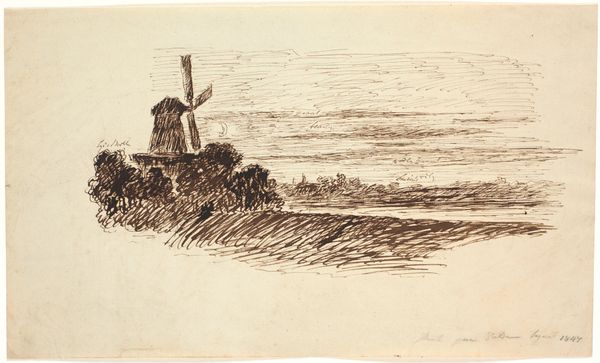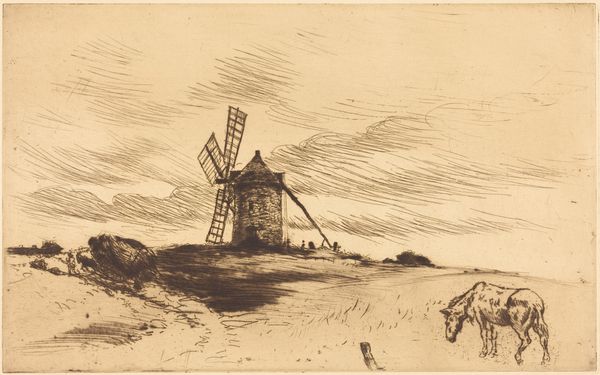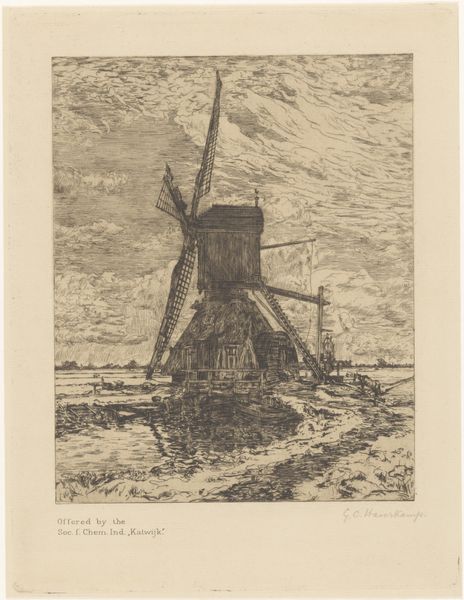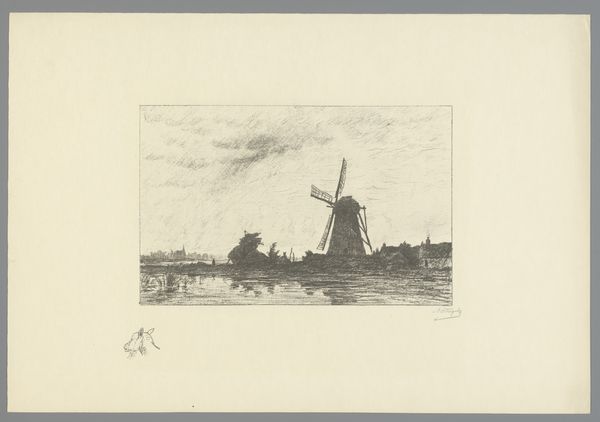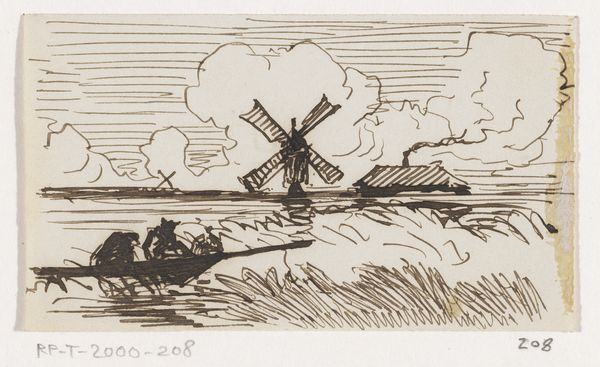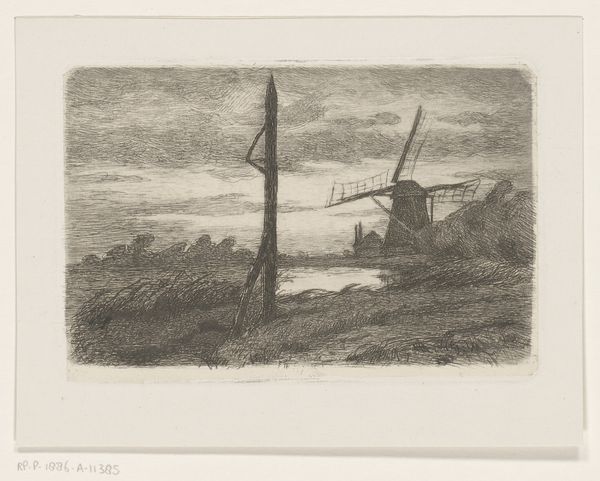
#
ink drawing
#
quirky sketch
#
pen illustration
#
pen sketch
#
old engraving style
#
personal sketchbook
#
ink drawing experimentation
#
pen-ink sketch
#
sketchbook drawing
#
sketchbook art
Dimensions: height 80 mm, width 120 mm
Copyright: Rijks Museum: Open Domain
Curator: Looking at this quaint rendering, “Molen bij een boerderij,” which translates to "Mill by a Farm," it immediately conjures a feeling of serenity, wouldn't you agree? Editor: There's something captivating in its sketched appearance. The piece is rather diminutive; likely an exercise from a personal sketchbook created with pen and ink around 1867-1910 by Etha Fles. Curator: The windmill, so often a symbol of industry and progress, contrasts beautifully with the more humble farm building, presenting the viewer with what they want. Editor: Considering this era, I'm curious about the physical and social effort embedded in the labor practices around the depicted landscape. This kind of illustration provides an invaluable document regarding those labor practices. Also, where did Fles acquire paper of this specific type and dimensions and what social class might this specify about the artwork creator and likely patrons? Curator: I can definitely understand where you're coming from, I am struck by the windmill's almost archetypal role as a power-harnessing icon across cultures, especially regarding stories and imagery associated with Dutch heritage. Editor: Interesting, to me the quick rendering doesn't convey authority so much as immediacy; there is so much the viewer can fill in based on minimal information. I want to zoom in to see any watermark to identify the paper. What about the ink–was it commonly produced? I wonder how much the material affected mark-making. Curator: I suppose it can be perceived as unassertive since this style seems rather more personal. We can certainly feel that hand and gesture through those brisk pen lines and that gives a certain kind of intimacy which may provide just as much to an interested contemporary patron as well. What an artifact! Editor: Precisely. I think this demonstrates perfectly the blend between industry and craft that informed social life during the latter half of the nineteenth century. Hopefully visitors will start thinking a bit about those relationships themselves!
Comments
No comments
Be the first to comment and join the conversation on the ultimate creative platform.
